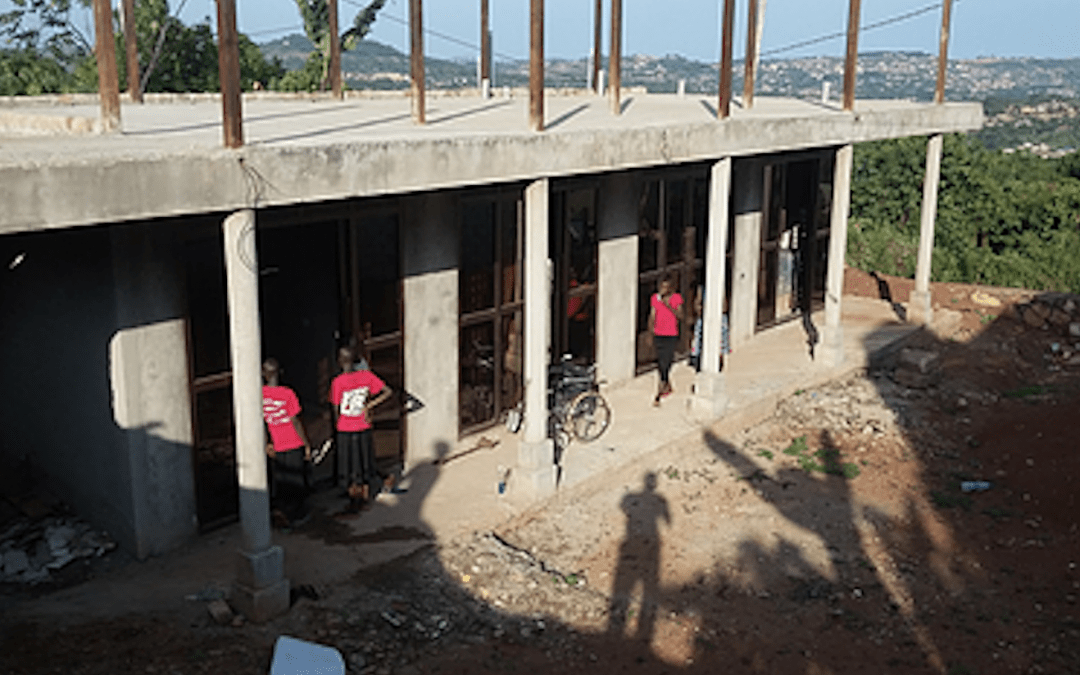Image caption: Living facilities for girls aged 13-19 at the Give Her a Chance Orphanage are currently under construction.
By Esther Cha, ’24
While thousands of children in the United States reluctantly drag themselves out of bed every morning to go to school, many Ugandan girls go through life without ever having the opportunity to step into a classroom. For many of us who take the privilege of a quality education for granted, this may seem like a “dream come true.” However, in Uganda it is only one of the many forms of discrimination that girls and women face in Uganda.
In Uganda, girls and women have a distinctly lower social status than men. This gender inequality often limits female participation in formal and informal institutions such as family, marriage, and religion. Put simply, Ugandan women have very little power to make their own decisions, acquire a profitable job, and be independent. Though education may be a partial means of escape from the patriarchal system, the high poverty rates are a substantial barrier to female education. Many girls are forced to drop out of school to pursue income-generating activities for the household or are married off in exchange for a dowry. Recent data shows that only 53% of girls aged 6-12 are reported to complete the required seven years of primary education, and merely 22.5% of the female Ugandan population as a whole enroll in secondary education.
The male-dominated society in Uganda also poses problems for girls who are able to pursue an education. Despite implementing free, universal primary education in 1997, Ugandan facilities and teaching styles remain unaccommodating to female students. The lack of security, privacy, and sanitation exposes girls to sexual assault as well as creates difficulties for them to attend school while menstruating. Moreover, girls are often explicitly discouraged from attending school. Female students are often portrayed as promiscuous, and the idea that education is only for boys eventually decreases female participation and attendance. At home, Ugandan girls and women are responsible for domestic labor, leaving little time to complete assigned homework. Ultimately, free education remains ironically inaccessible to Ugandan girls, highlighting the need for female support.
The many obstacles that prevent Ugandan girls and women from obtaining education have drawn local and global attention over the years. Many non-profit organizations focus their efforts on the gender disparities in the Ugandan education system. Give Her a Chance is a project developed by the Adonai Centre in Uganda to support female secondary students studying at cost-effective secondary schools within the Nakiragala and Buddo communities. The Give Her a Chance Project offers accommodation, mentoring, and financial support for girls into adulthood. This project emphasizes the importance of education and life skill development in creating well-prepared individuals that are ready to support their future families and communities. To learn more about or aid the Give Her a Chance Project, visit this link.
Esther Cha is a member of the class of 2024, majoring in neuroscience and psychology. She joined GlobeMed at the beginning of her freshman year, and she looks forward to continuing her active involvement in the next three years.

